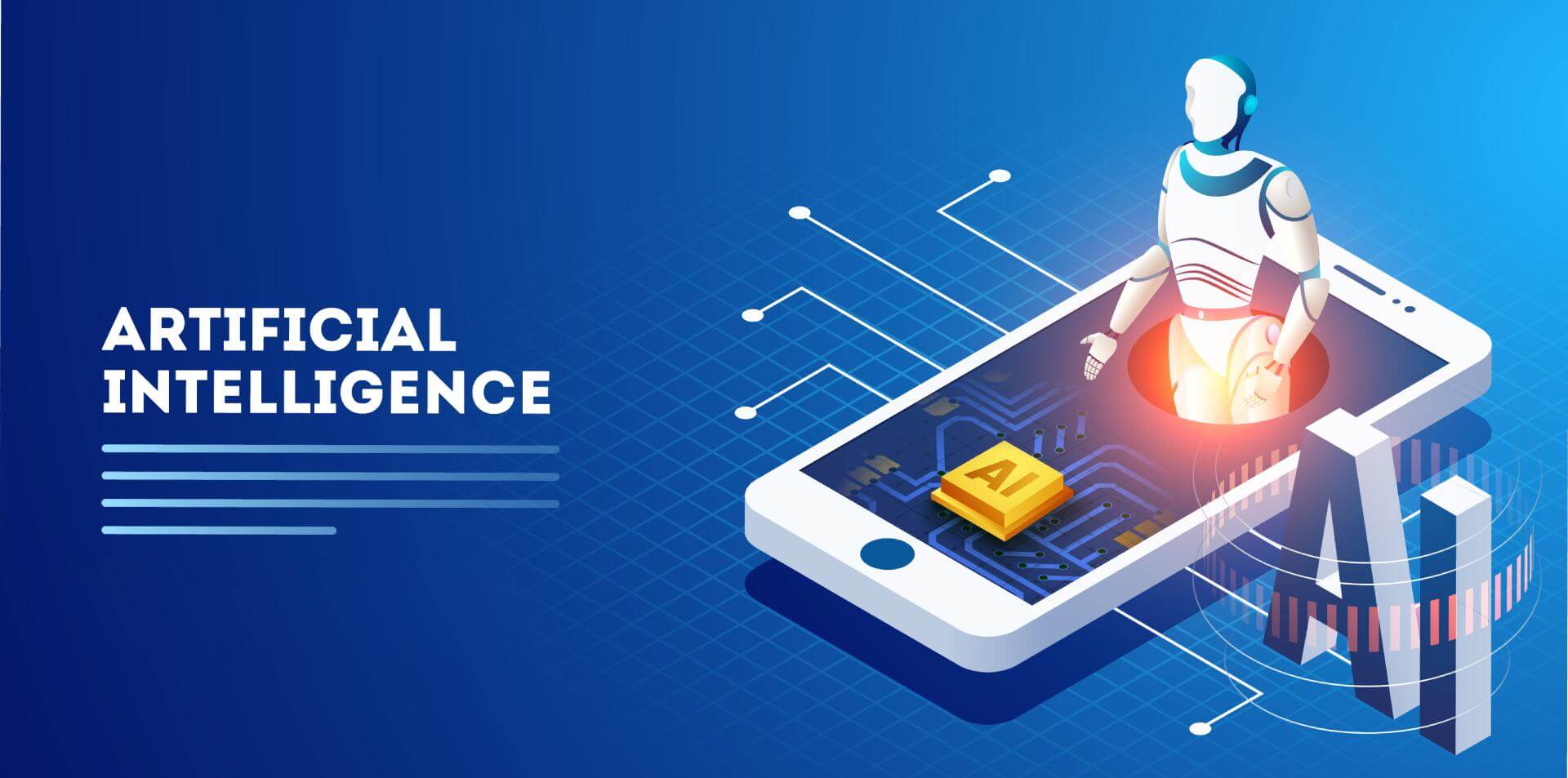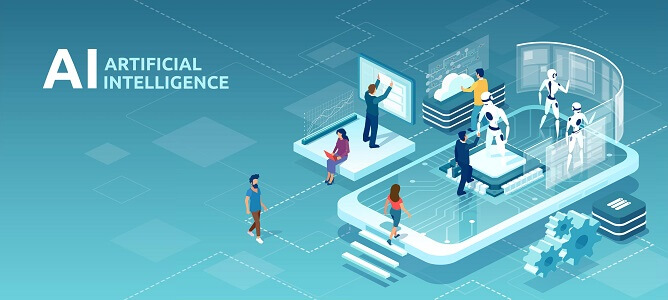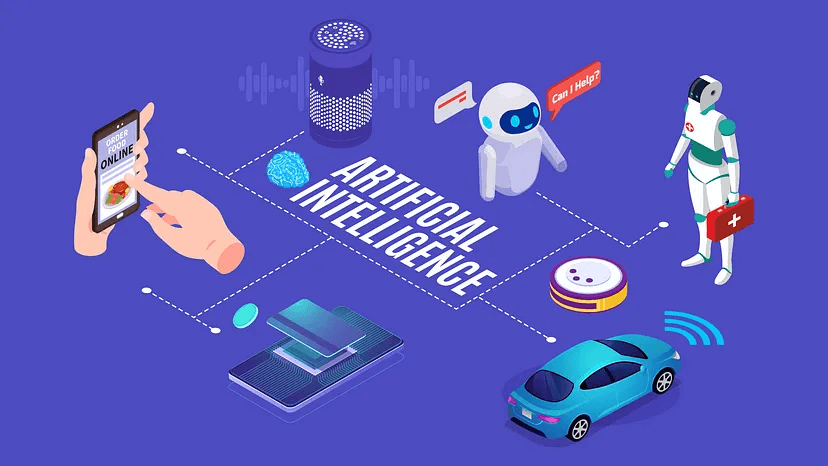Artificial Intelligence (AI) is increasingly woven into the fabric of our daily lives, reshaping how we interact with technology, solve problems, and even perceive the world. Its role spans a broad spectrum, from simplifying mundane tasks to tackling some of the most pressing global challenges. This article delves into the multifaceted impact of AI, exploring how it simplifies everyday life, contributes to solving global issues, enhances work processes, and revolutionizes the customer experience, including through innovations like a visitor management system that streamlines and secures access to physical locations.
Simplifying Everyday Life
One of the most noticeable roles of AI in our lives is its ability to simplify routine tasks, allowing us to save time and effort. For instance, AI-driven navigation apps like Google Maps or Waze quickly process vast amounts of traffic data to suggest the best route to work, helping users avoid congestion and reach their destination faster. Similarly, AI algorithms in streaming platforms such as Netflix or Spotify analyze users’ preferences to recommend movies, music, and books that align with their tastes. This personalization extends to shopping as well, where AI helps customers discover special offers and products tailored to their needs by analyzing past purchases and browsing habits.
AI’s capacity to quickly process and analyze data significantly reduces the cognitive load on users. Instead of manually sifting through vast amounts of information, people can rely on AI to present them with the most relevant choices, whether it’s planning a trip, deciding what to watch, or even managing finances. This not only saves time but also enhances the overall user experience by making interactions with technology more intuitive and responsive.

Solving Global Problems
Beyond everyday conveniences, AI plays a critical role in addressing some of the world’s most challenging problems. In healthcare, AI is revolutionizing the search for cures for various diseases, including cancer and rare genetic disorders. Machine learning algorithms can analyze vast datasets from clinical trials and genetic research to identify potential treatments more quickly and accurately than traditional methods. For example, AI-powered tools are being used to develop new drugs by predicting how different compounds will interact with the human body, significantly speeding up the drug discovery process.
AI is also at the forefront of efforts to combat environmental pollution. Through the analysis of satellite images and sensor data, AI can monitor pollution levels in real-time, predict future environmental trends, and suggest actionable steps to mitigate harm. For instance, AI-driven models can optimize energy use in smart grids, reducing carbon emissions, and promoting the use of renewable energy sources.
In industries where working conditions are hazardous or difficult to access, AI-powered robots and drones are being deployed to perform tasks that would be dangerous for humans. These technologies are used in mining, deep-sea exploration, and disaster response, where they can operate in extreme environments, gather data, and perform complex operations without putting human lives at risk.
Assistance in Work
AI is transforming the workplace by automating tasks across various industries, leading to increased efficiency and productivity. In healthcare, for example, AI can automate routine operations such as processing medical images, enabling radiologists to diagnose conditions more quickly and accurately. AI systems can also provide doctors with real-time insights and recommendations based on patient data, helping them make more informed decisions.
In the financial sector, AI algorithms are used to detect fraudulent transactions by analyzing patterns in large datasets. These systems can identify suspicious activities in real-time, allowing banks to take immediate action to prevent fraud. AI also assists in automating customer service tasks, such as processing loan applications and managing investment portfolios, freeing up human workers to focus on more complex and value-added activities.
Manufacturing is another industry where AI is making a significant impact. AI-driven automation systems can monitor production lines, predict equipment failures before they occur, and optimize supply chain management. This not only reduces downtime and maintenance costs but also improves overall production efficiency.

Development of Social Media
Social media platforms have become an integral part of modern life, and AI is at the heart of their evolution. AI algorithms are responsible for curating the content that users see on their feeds, ensuring that it aligns with their interests and preferences. For example, platforms like Facebook and Instagram use AI to analyze user behavior, such as likes, shares, and comments, to recommend content that is likely to engage them.
AI also plays a key role in personalizing the user experience on social media. For instance, AI-powered chatbots can greet users with clarifying questions about their interests and provide tailored content suggestions. This personalization helps users discover new content, connect with like-minded individuals, and stay engaged with the platform.
Moreover, AI-based analytics are used to tailor customer experiences in retail and services, increasing satisfaction and loyalty. By analyzing customer behavior, purchase history, and preferences, AI can create personalized recommendations for products or services. This not only enhances the customer experience but also increases cross-selling and upselling opportunities for businesses.
AI-Based Analytics: Enhancing Customer Experiences
AI-based analytics have become a cornerstone in the retail and service industries, allowing companies to create highly personalized customer experiences that boost satisfaction and loyalty. Here’s how AI is transforming customer interactions:
Creating Personalized Recommendations: AI analyzes vast amounts of data, including customer behavior, purchase history, and preferences, to provide personalized product or content recommendations. For instance, e-commerce platforms like Amazon use AI to suggest items that customers are likely to purchase based on their browsing and buying patterns. This not only enhances the shopping experience but also increases the chances of cross-selling and upselling.
Dynamically Changing the Interface: AI can adapt the website interface to the user’s preferences in real-time. For example, if a user frequently searches for electronics, the website might prioritize displaying gadgets and related offers on the homepage. This dynamic adaptation ensures that users are presented with content that is most relevant to them, improving their overall experience.
Optimizing the Purchase Path: AI helps identify and resolve bottlenecks in the purchase path by automating the optimization process. This includes simplifying the checkout process, removing barriers to purchase, and providing personalized prompts to guide the user. For instance, AI can automatically fill in shipping details or suggest payment methods based on previous transactions, making the purchasing process smoother and more efficient.
Customer Sentiment Analysis: AI-powered sentiment analysis tools monitor and analyze customer feedback, reviews, and social media interactions to gauge customer mood. This helps companies identify areas for improvement, respond to customer issues promptly, and provide a personalized experience based on their preferences. For example, if a customer leaves a negative review, AI can alert customer service to address the issue quickly, potentially turning a dissatisfied customer into a loyal one.
Reducing Human Intervention: AI-powered chatbots are increasingly being used to handle customer queries in real-time, reducing the need for human intervention. These chatbots can resolve common issues quickly and accurately, ensuring that customers receive timely assistance without delays or errors. By automating routine tasks, companies can free up human agents to focus on more complex issues, improving overall service quality.
Predicting Future Purchases: AI’s ability to predict future purchases based on past behavior is another powerful tool for enhancing the customer experience. By analyzing previous transactions and browsing patterns, AI can anticipate a customer’s needs and suggest products or services before the customer even realizes they want them. This proactive approach not only improves the customer experience but also increases sales opportunities.
Emotion Detection and Sentiment Analysis: AI has the capability to measure human emotions through voice modulations and facial expressions during phone calls or video conversations. This technology can determine whether a customer is satisfied with a product or service, allowing companies to make necessary adjustments to improve satisfaction. For example, if AI detects frustration in a customer’s voice during a call, it can prompt the support agent to take a more empathetic approach, potentially diffusing a tense situation.
Automated A/B Testing: AI can conduct automated A/B testing of various website elements, such as headlines, images, and calls-to-action, to determine which versions perform best. This helps companies improve the user experience (UX) and increase conversion rates by continuously optimizing their digital interfaces.
Smart Content Management: AI can be taught to manage content effectively. For instance, it can analyze customer requests to identify recurring questions or problems that take the longest to resolve. This information can be used to create helpful instructions for customers, update outdated knowledge base materials, and improve overall content strategy. By addressing common pain points, companies can enhance the customer experience and reduce the need for repetitive support interactions.
Smart Routing Systems: AI-based smart routing systems can analyze incoming customer requests and route them to the appropriate support representative or department with the necessary expertise. This speeds up the resolution process and ensures that customers are connected with the right specialist to address their issues effectively.

Implementing AI Successfully: Best Practices
While AI offers immense potential, its successful implementation requires careful planning and execution. Here are some best practices for businesses looking to integrate AI into their operations:
High-Quality and Relevant Customer Data: Clean, structured, and relevant customer data is the foundation of any successful AI implementation. Businesses must ensure that their data is accurate and up-to-date, as AI systems rely on this information to make informed decisions and provide personalized experiences.
Choosing the Right AI Tools: Companies need to select AI tools that align with their specific business needs. This involves considering factors such as the size of the company, industry specifics, and long-term goals. For example, a small retail business may benefit from an AI-powered recommendation engine, while a large manufacturing firm might focus on AI-driven automation for quality control.
Iterative Implementation Process: Implementing AI should be an iterative process. Businesses should start with small, test projects to evaluate the effectiveness of AI tools before scaling up. This allows for the identification of potential issues and the opportunity to refine strategies based on real-world results.
Compliance with Data Protection Laws: As AI systems often handle sensitive customer data, it’s crucial for businesses to comply with data protection regulations, such as the General Data Protection Regulation (GDPR) in the European Union. Maintaining transparency in data usage builds trust and reinforces brand reputation.
Training the Team: For AI to be effective, employees need to understand its capabilities, limitations, and how to work with AI-generated insights. Companies should invest in training programs to equip their teams with the necessary skills to leverage AI effectively.
Human Touch in Customer Service: Even with the rise of AI, human interaction remains irreplaceable, especially in customer service. AI can handle repetitive tasks, but complex issues often require the empathy, creativity, and problem-solving abilities of human agents. By combining AI with human expertise, companies can provide a more comprehensive and personalized service.
Conclusion: The Future of AI in Everyday Life
AI’s role in our lives is ever-expanding, offering tools and solutions that simplify everyday tasks, address global challenges, and enhance customer experiences. As AI continues to evolve, its integration into various aspects of life will only deepen, making our interactions with technology more seamless and intuitive. However, the successful application of AI depends on careful planning, responsible data management, and a commitment to maintaining the human touch where it matters most. By embracing AI while respecting its limitations, we can unlock new possibilities and create a future where technology truly serves the needs of humanity.

Surfer, self-starter, music blogger, Eames fan and product designer. Making at the intersection of modernism and mathematics to craft experiences both online and in real life. Check me out on Dribbble or Medium.


